What Are The Different Types Of Software Engineering?
Supriya Singh
Posted On: November 21, 2023
![]() 30436 Views
30436 Views
![]() 14 Min Read
14 Min Read
Software Engineering is a career path not just limited to a specific industry but is widely spread across many different sectors, from fashion to education to health care.
The software industry is vast and exciting, with many roles to explore. Each position requires unique skill sets, making it essential to get familiar with it and their types.
This article aims to showcase different types of software engineering roles and their differences. We will also cover the different kinds of job titles in the software industry and their hierarchy.
TABLE OF CONTENTS
What is Software Engineering?
Software Engineering is the branch of Computer Science Engineering that uses engineering principles to produce software by designing, developing, testing, maintaining, and evolving software systems over time.
It uses various tools, techniques, methodologies, and approaches for designing, operating, automation testing, and maintaining software applications.
Software Engineers apply a disciplined and systematic technique to the entire software development life cycle(SDLC) to build reliable, high-quality, and efficient software.
Types of Software Engineering
Software Engineering is a broad field that encompasses a variety of sub-disciplines and specializations and focuses on different engineering principles for the software development process. So, here let’s learn different Software Engineering fields:
Frontend Engineering
In Frontend Engineering, an engineer primarily focuses on developing a software application’s user interface (UI) and user experience (UX). In other terms, frontend engineers build what users see and how they interact with the software application.
They are committed to working with layouts, aesthetics, and visual designs, ensuring that the software applications, i.e., websites and web applications, seem easy to use, visually appealing, and perform smoothly. Frontend engineers must also be able to perform UI testing to ensure the software’s quality.
The top skills that a frontend engineer possesses are UI/UX designing, HTML/CSS, and JavaScript programming for plain web designing, along with frontend frameworks like React.js, Angular.js, Vue.js, and Next.js, you can stand out in the competition.
Following are some of the resources you don’t want to miss out on
- Complete Guide To Document Object Model
- Ultimate Beginner’s Guide to CSS
- Best CSS Frameworks
- Best JavaScript Frameworks For 2023
- Angular vs. React vs. Vue: Key Differences
They also use libraries like Bootstrap and Material UI to develop responsive, mobile-first websites. Frontend engineers are also responsible for data fetching and displaying through APIs.
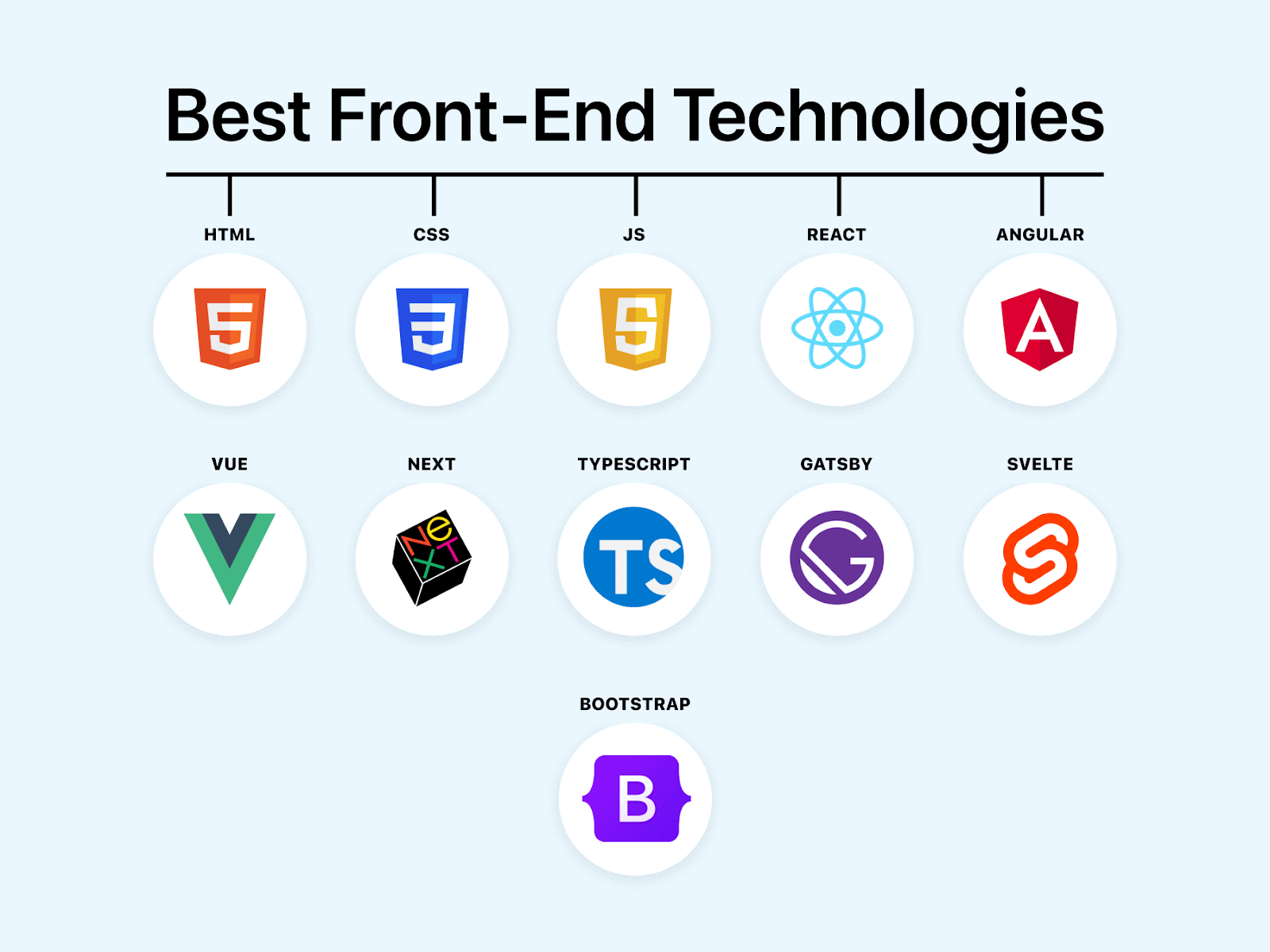
Backend Engineering
The backend engineer is responsible for designing the system’s core computational and business logic, servers, databases, API, and API testing.
Backend engineers handle server-side tasks such as user authentication, retrieving product details, and processing payments. Managing complex operations behind the scenes makes the front end lighter and faster.
Developers possess skills like advanced data structures and algorithms, database management systems, computer networking protocols, functional testing, and non-functional testing are generally preferred. Popular frameworks and databases used by backend engineers are Node.js, Express.js, Django, Flask, Spring Boot, MySQL, PostgreSQL, and MongoDB.
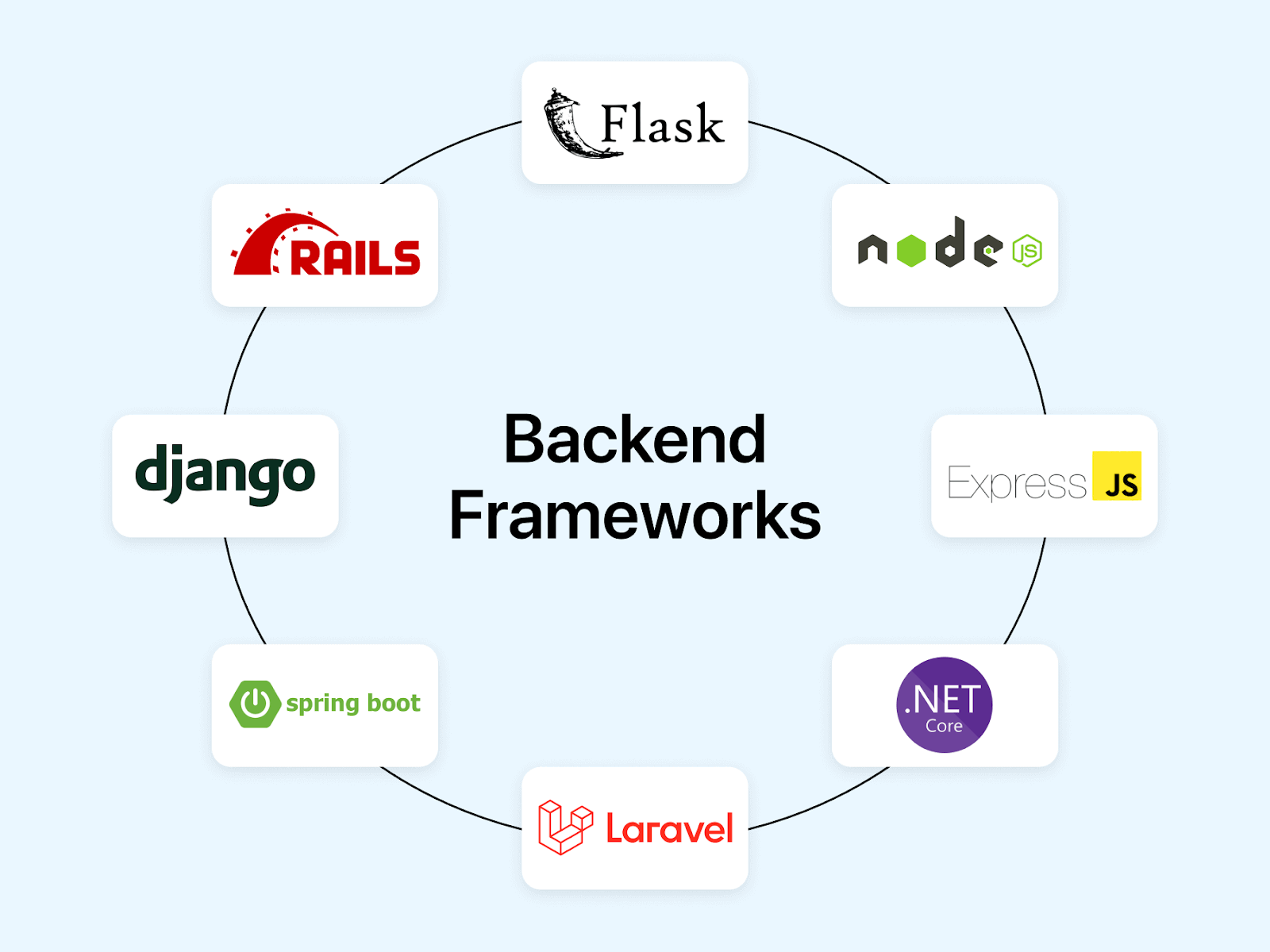
Below are some resources to start your journey with backend development:
- Top 12 Python Web Development Frameworks In 2023
- Top 9 PHP Frameworks For Web Development
- NodeJS Best Practices
 Note
NoteTest your web apps on a Selenium-based cloud Grid of 3000+ real browsers. Try LambdaTest Today!
Full Stack Engineering
Full stack engineer is responsible for handling the front end and back end of the web application. They are concerned with every application part, from UI/UX to user interaction, backend data handling, testing, and securing the application.
Full stack engineers have skills in data structure and algorithms, frontend designing, architecture designing, database management, API designing, performance testing, code review, updates, and test management.
There are many advantages of having a full-stack engineering team instead of a separate frontend and backend engineering team for web app development:
- Saves project cost and time.
- Enhances productivity.
- Complete understanding and ownership of the project.
- Faster bug resolution due to understanding the complete system.
Mobile App Development
Mobile application development is developing applications for smartphones, tablets, smart TVs, and smartwatches, most commonly for the iOS and Android operating systems.
Nowadays, mobile app development is mainly of two types: native and hybrid. A native mobile application uses platform-specific frameworks and programming languages, like Swift/Objective C for iOS or Java/Kotlin for Android. In contrast, a hybrid mobile app combines the elements of a native app and a web app that can be compiled to run on iOS and Android.
Along with the programming language, an excellent mobile app developer must understand and consider screen sizes, hardware requirements, OS integrations, and mobile app testing tools like Appium.
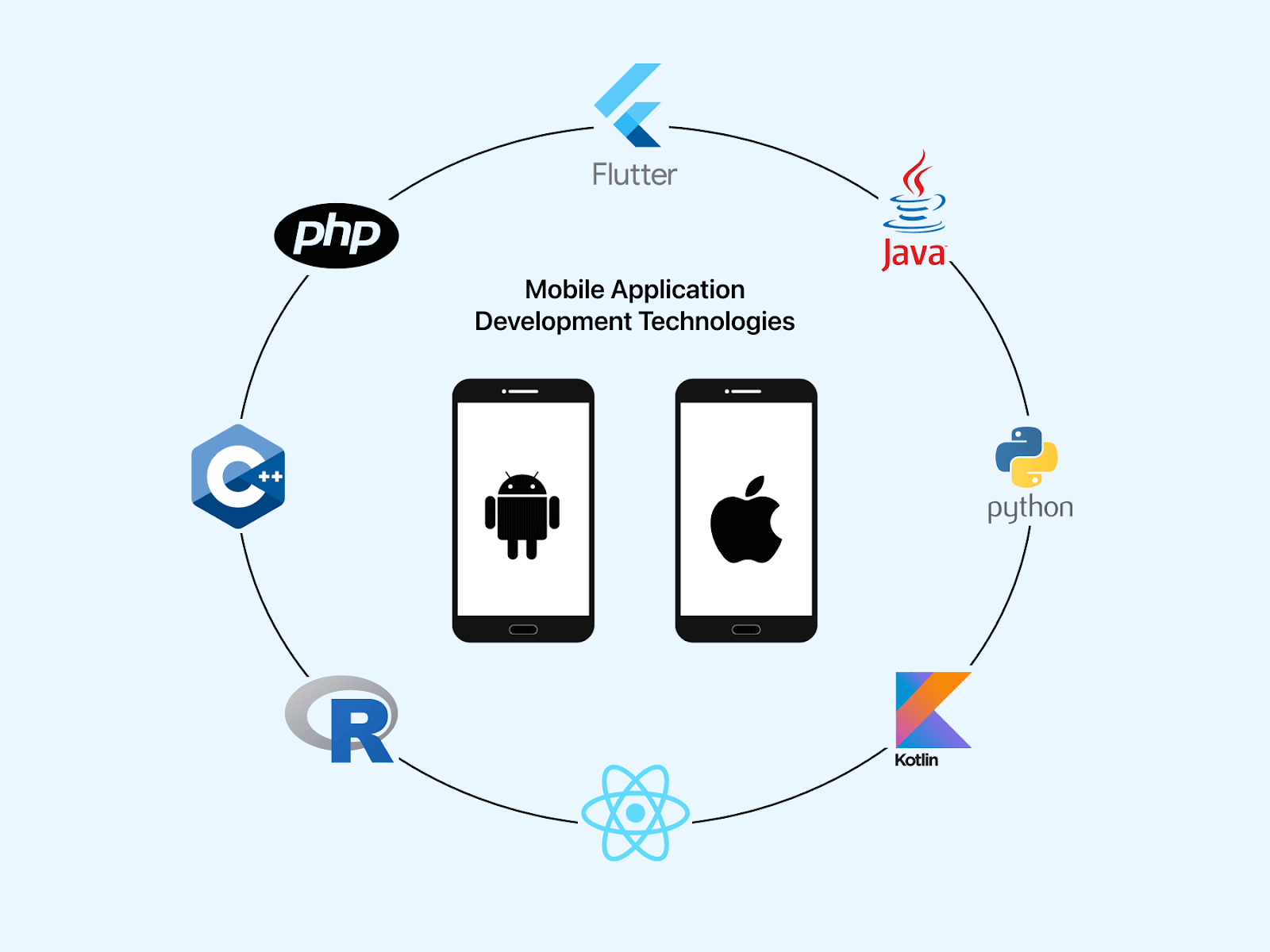
 Note
NoteAutomate Android or iOS apps on the Appium cloud of 3000+ real devices. Try LambdaTest Today!
Data Engineering
Data engineers are responsible for working with the design, construction, analysis, and data driven testing of the data infrastructure that holds up data-driven applications. Data Engineers work with various technologies,
- Relational databases, such as MySQL and PostgreSQL.
- NoSQL databases, such as Cassandra and MongoDB.
- Big data frameworks such as Hadoop, Spark, and Kafka
- Cloud computing platforms such as AWS, Azure, and Google Cloud Platform.
- A basic understanding of machine learning principles and algorithms.
Data engineers also collect and validate substantial amounts of structured and unstructured quality data for usage by the Data Scientists. Data engineers handle operations like Database Management, Data Warehousing, ETL, Data crunching, Data acquisition, Data modeling, and Data Mining. Data Engineers with the data infrastructure help the developer and test engineers to keep a check on the smooth functioning of the application.
In addition to the above technical skills, Data engineers must have strong creative thinking, problem-solving, and communication skills to communicate effectively with various stakeholders, including data scientists, engineers, and business users.
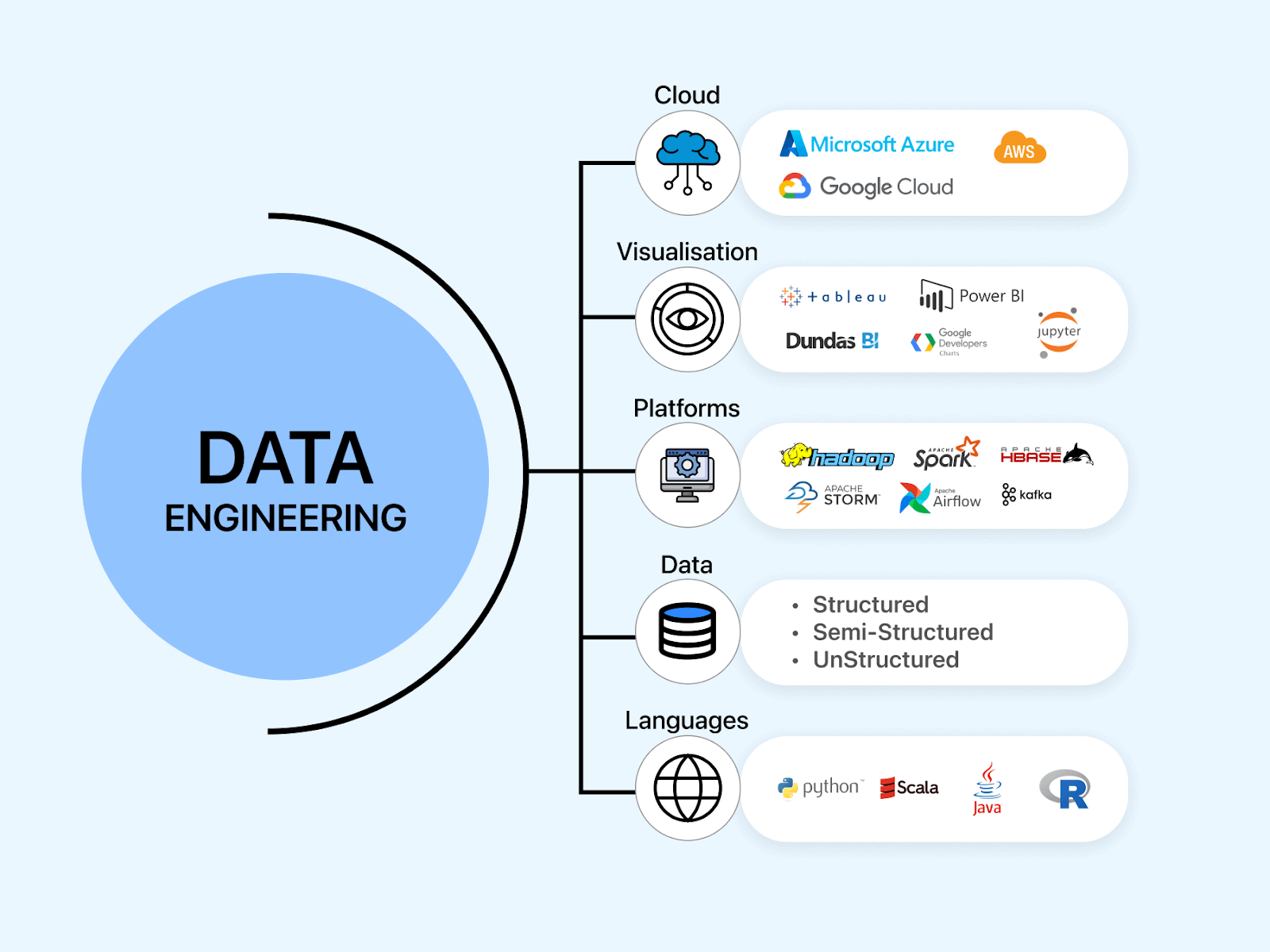
Database Administration (DBA)
A Database Administrator (DBA) is a software engineering field where engineers are the overall manager of the Database System. They are mainly responsible for controlling, operating, maintaining, and coordinating the database management systems.
They also provide access to the database, coordinating, capacity, monitoring uses, planning, installing, gathering, and acquiring both hardware and software resources as and when needed.
The role of Database Administrator also varies from database design, configuration, troubleshooting, migration, security, backup, and recovery. DBA plays a crucial role in any organization or startup that relies on one or more database systems.
Cloud Engineering
In Cloud engineering, an engineer is responsible for designing, deploying, maintaining, and managing the cloud-based applications, their operations, and infrastructure. In other words, Cloud engineers majorly help organizations adopt and utilize cloud services effectively.
However, Cloud engineer is a general term used for recognition, and it is further divided into:
- Cloud Software Engineer
- Cloud System Engineer
- Cloud Network Engineer
- Cloud Security Engineer
- Cloud Architect
Security Engineering
Security engineers focus on engineering principles and practices for designing and implementing secure systems. This often involves security testing and implementing new security features, providing constant network and computer upgrades, and responding to and troubleshooting security incidents.
These types of software engineering are also known as
- Cybersecurity Engineering
- Information Systems Security Engineering
- Information Security Engineering
- Network Security Engineering
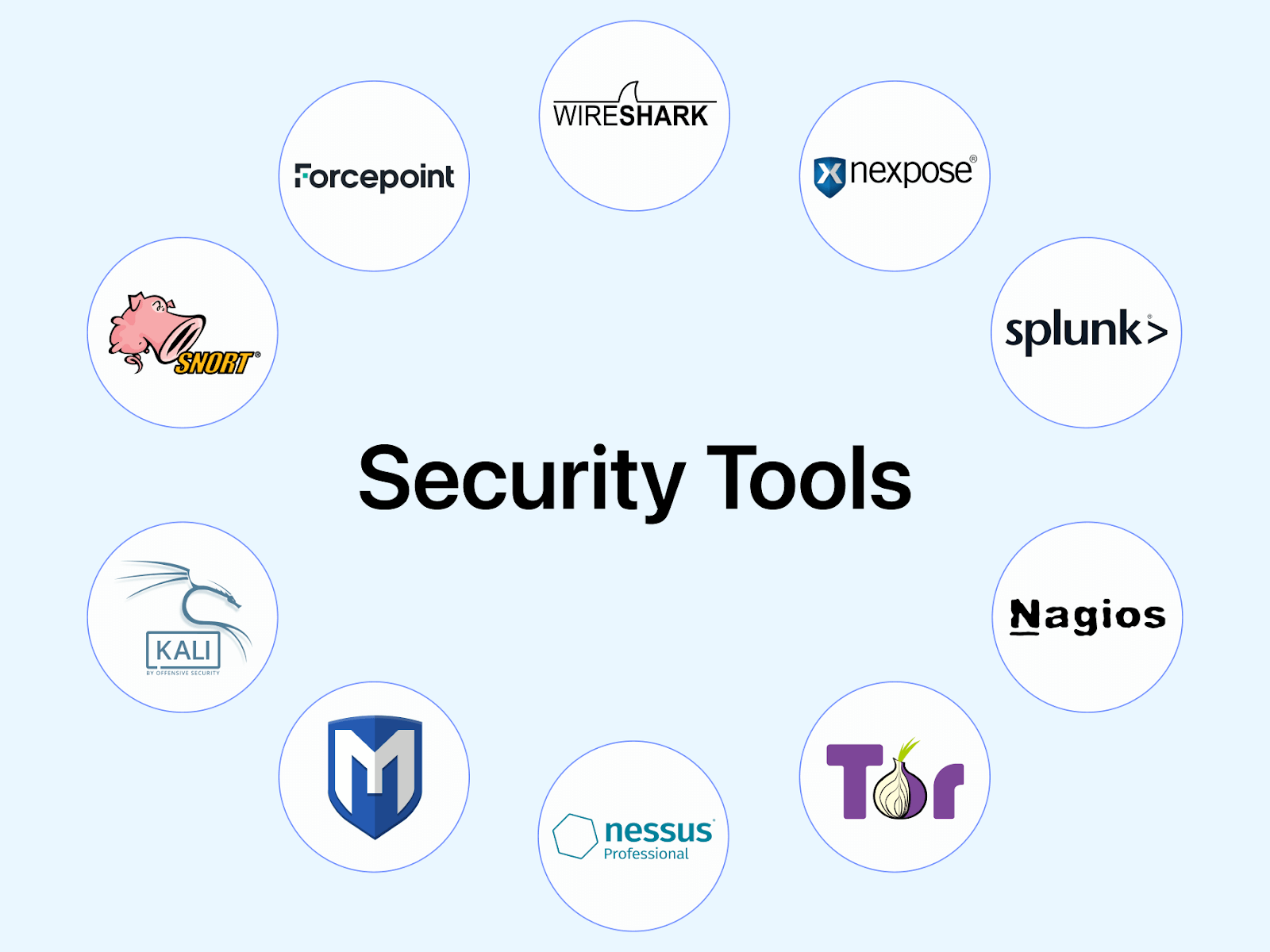
DevOps Engineering
The word ‘DevOps’ is derived from “Development and Operations.” It is a set of practices focusing on increasing the effectiveness and efficiency of the software development life cycle (SDLC).
A DevOps engineer is an IT professional who must have a wide range of knowledge of both operations and development, including programming, architecture management, system administration, cloud computing, deployment toolchains, and DevOps Automation.
A DevOps engineer’s goal is to increase the frequency of software releases by optimizing continuous integration and continuous delivery (ci/cd). They work with the development team to troubleshoot the necessary coding and scripting issues and to connect various application elements, such as libraries, APIs, and SDKs (software development kits), and integrate other components like SQL database management or messaging tools that DevOps teams need to execute the software release on OSes and production infrastructure.
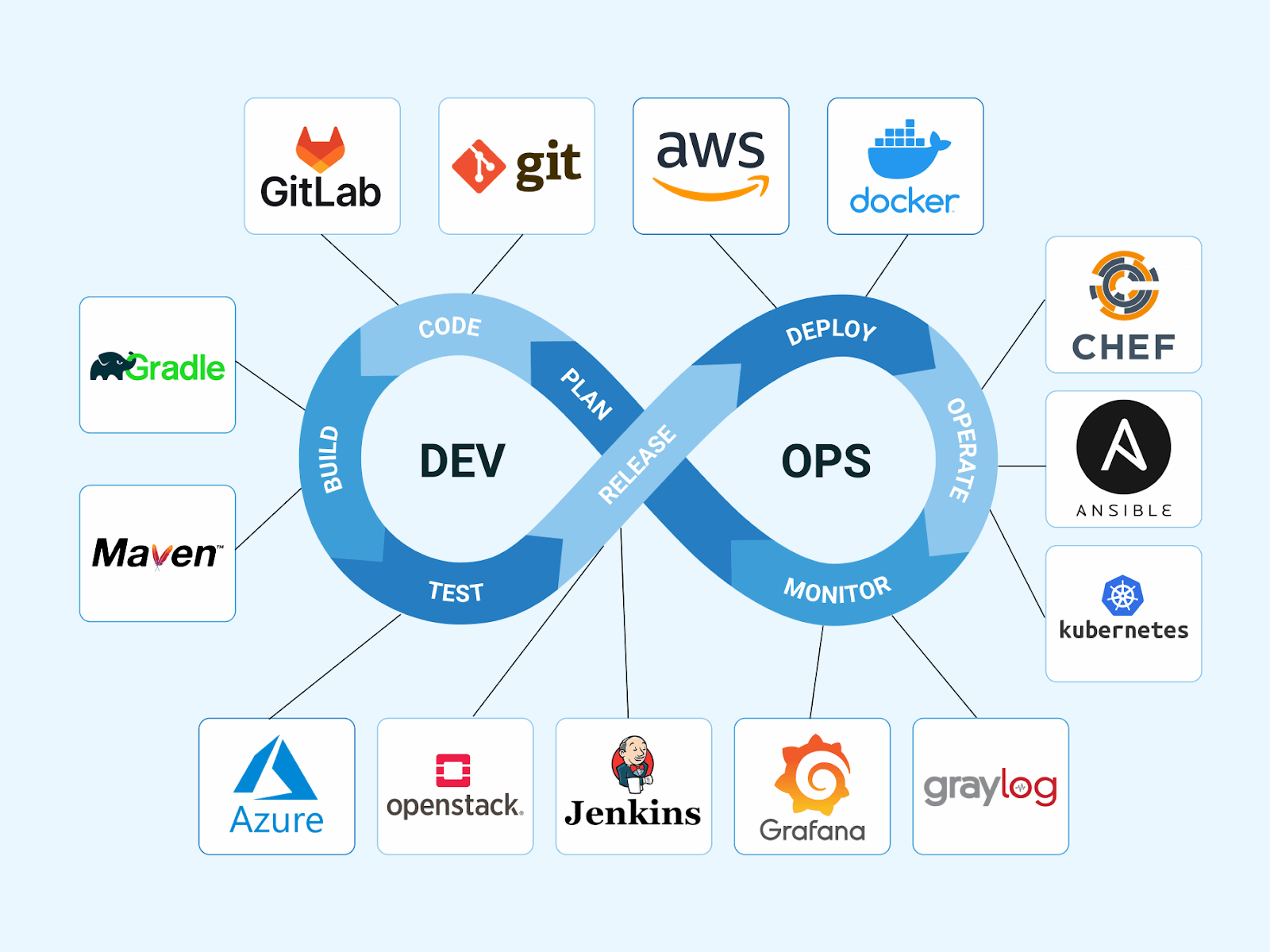
Software Engineering in Test (Quality Assurance Engineering)
Quality Assurance (QA) engineering, or software engineering in testing, is a specialized discipline within software engineering. QA engineers focus on testing and validating software applications to ensure their quality, functionality, and bug-free performance.
QA engineer’s responsibilities encompass the creation and execution of test cases, manual tests, and automated tests using tools and frameworks like Selenium, Appium, and Cloud Grid (LambdaTest) for bug identification and reporting of products and processes to make the end user get seamless user experience and close collaboration with developers to guarantee software application quality. QA engineers use many testing methodologies, including manual, automated, and performance testing, to guarantee software applications’ efficiency, reliability, and security.
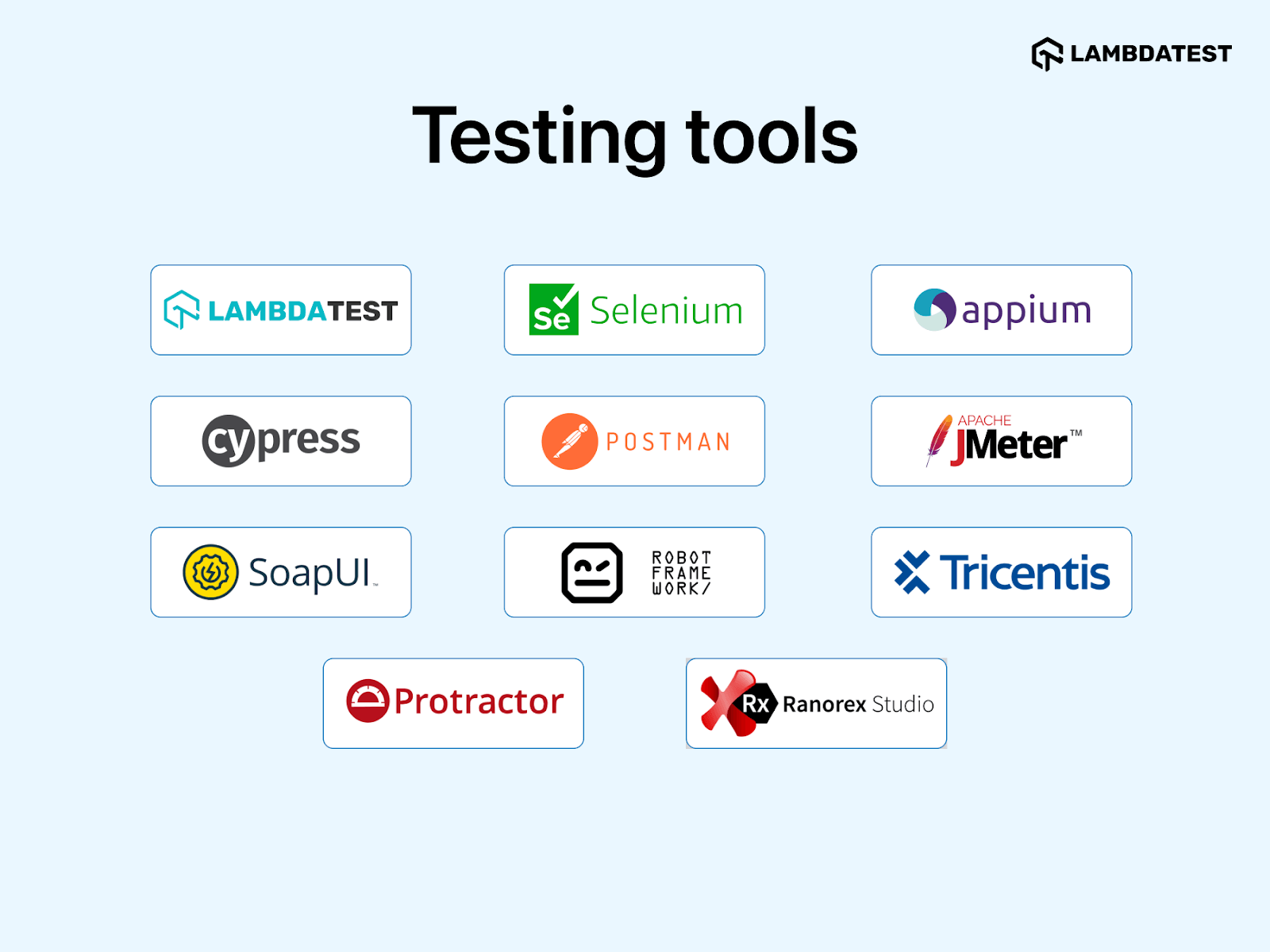
 Note
NoteSimplify Testing: Opt for LambdaTest’s Selenium cloud grid with 3000+ real browsers and OS options. Try LambdaTest Today!
Software Integration Engineering (Embedded System Engineering)
Unlike conventional computers, embedded systems employ software to operate hardware components, including sensors, actuators, microprocessors (like Raspberry Pis), and microcontrollers (like Arduino Unos). An embedded system engineer has experience with these.
These types of software engineering significantly impact everyday medical, manufacturing, consumer electronics, automotive technology, and home automation operations. As a result of the rapid development in connecting every device to the web and expanding the IoT (Internet of Things), the demand for embedded system engineers is increasing.
Common skills embedded engineers possess include MATLAB simulation, low-level programming languages like C, hardware integration, circuit designing, microcontrollers, and microprocessors.
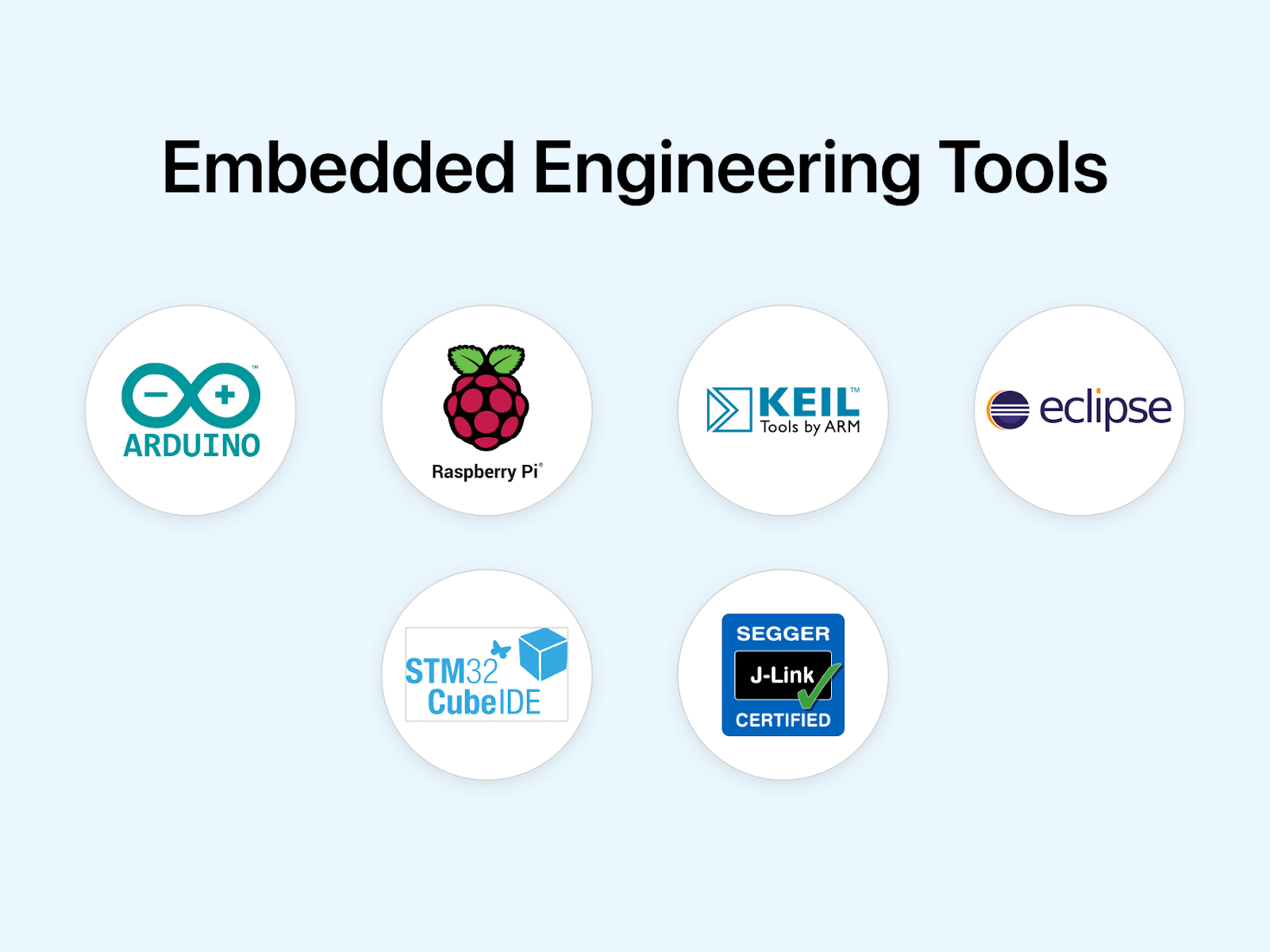
Machine Learning (ML) Engineering
Machine Learning (ML) Engineering aims to develop intelligent machines that can think and make decisions like humans. They ensure their systems are responsible, fair, and ethical by researching, building, deploying, monitoring, and evaluating.
They are responsible for developing machine learning models to make predictions and learn independently. As part of a larger data science team, they typically work with deep learning engineers, data scientists, data stewards, data architects, data analysts, and data engineers.
ML engineers have a strong foundation in computer science (CS), mathematics, and statistics.
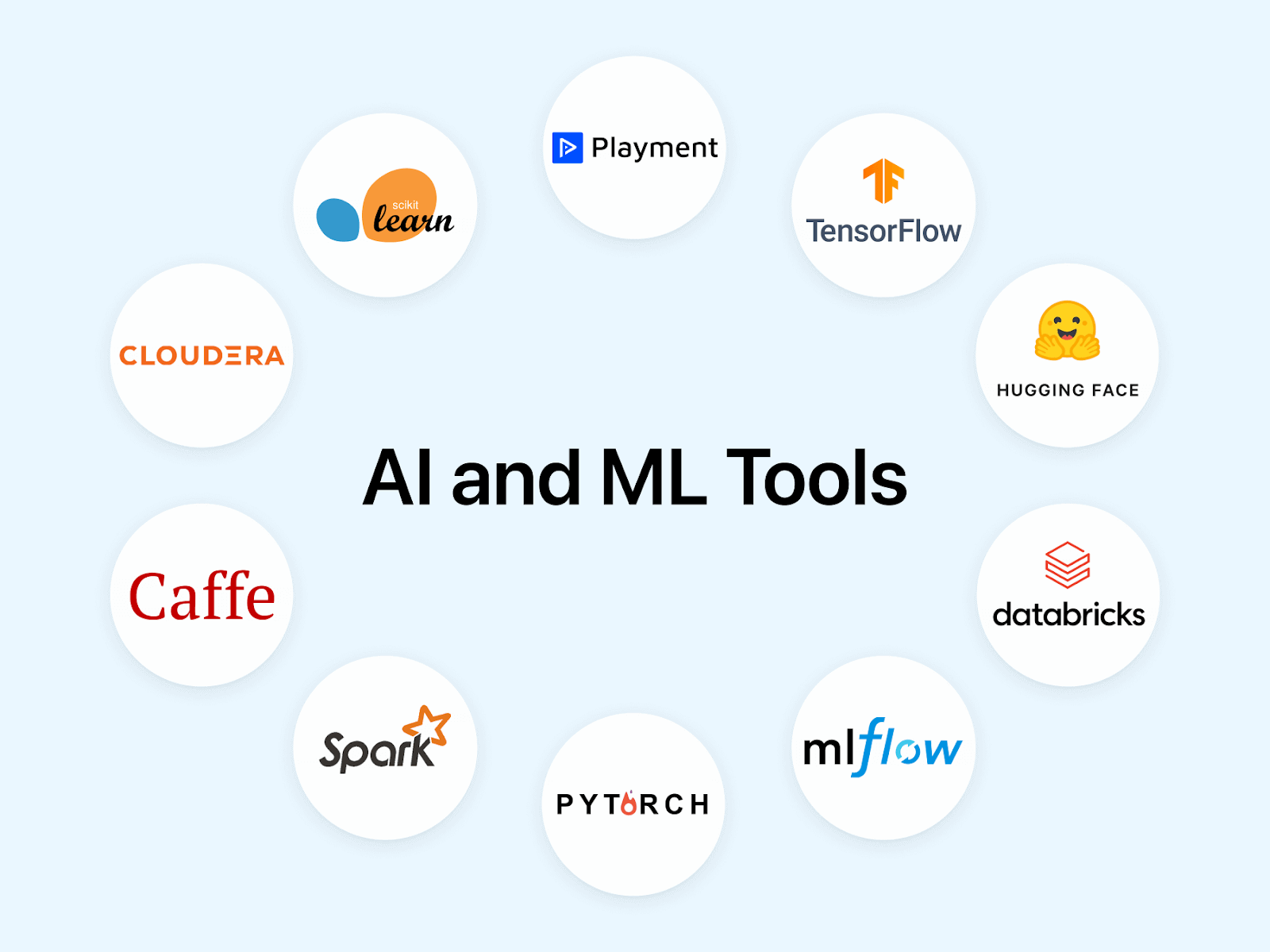
Game Development Engineering
Game development(aka video game development) engineers create interactive and engaging gameplay opportunities by designing, developing, testing, and monitoring video games for various platforms like Android, iOS, Windows, and Mac.
The 4 Best Game Engines of 2023 Are as Follows:
- Unity: The Versatile Workhorse
- Unreal Engine: The Graphics Powerhouse
- Amazon Lumberyard: The Underdog
- CryEngine: The Photorealistic Pioneer
Game developers are the masterminds behind the magic of video games. They work to develop the games’ engine, AI logic, stunning graphics, vibrant animations, and immersive-level designs. Every single click, movement, and detail of the game is coded to keep players captivated from start to finish. They bring the characters to life, create immersive scenery, and even create the perfect sound effects to make your gaming experience unforgettable.
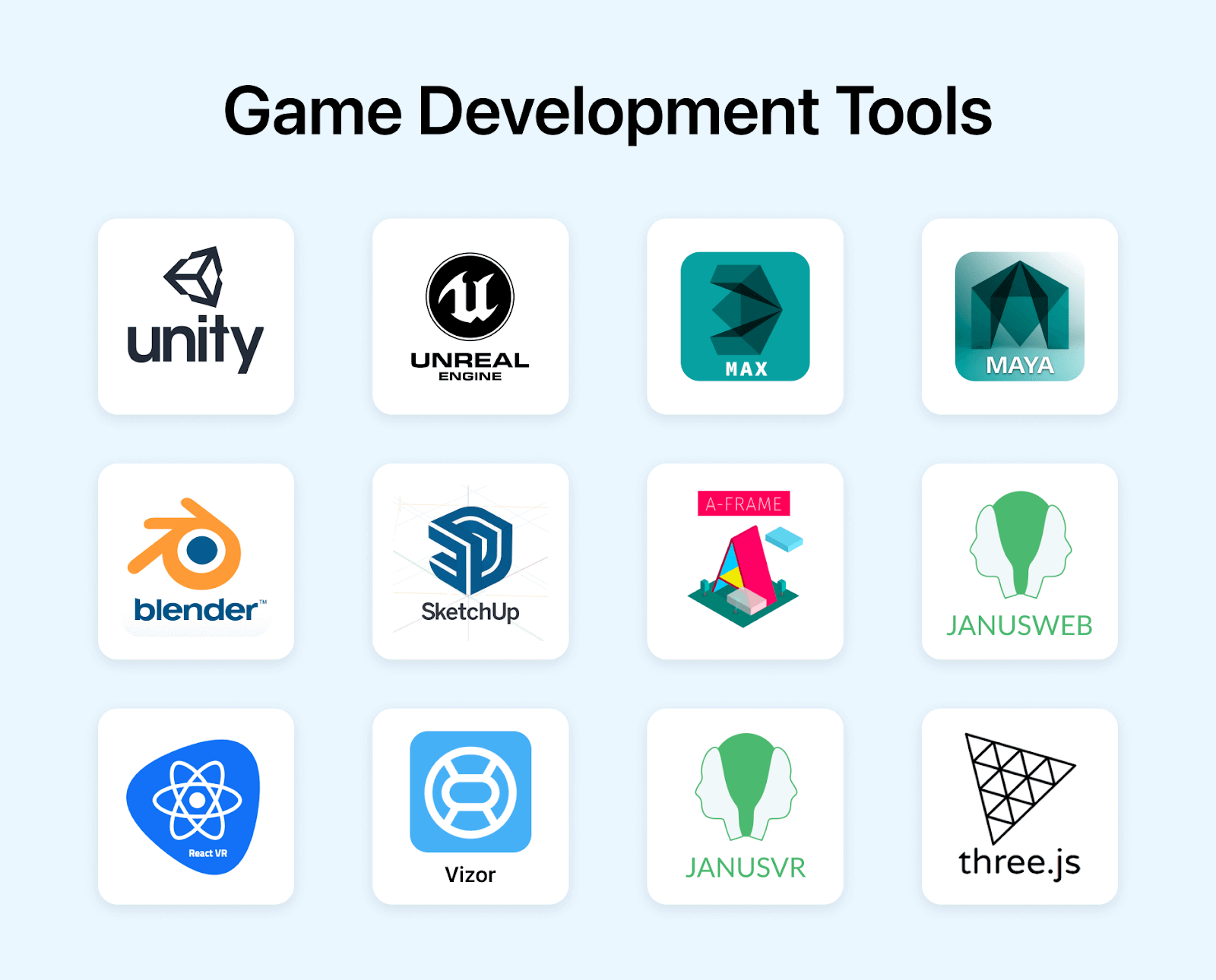
Scientific and Research Software Engineering
Research Software Engineers combine professional software expertise with an understanding of research. The development and usage of software are essential to numerous fields of scientific research and development.
Scientists read, write, update, and use software or codes to gain analytics and demonstrate scientific conclusions. The formal software engineering knowledge and techniques widely accepted in other software domains are less normally used in research and development software projects. Research and development software development approaches are usually informal, especially in upstream analysis, requirements, and design activities.
These research software engineers have a strong command over programming concepts and computer-aided designing concepts, along with mathematics and the research topic they are working on. Some common software they use or modify are MATLAB, Ansys, AutoCAD, and Simulink.
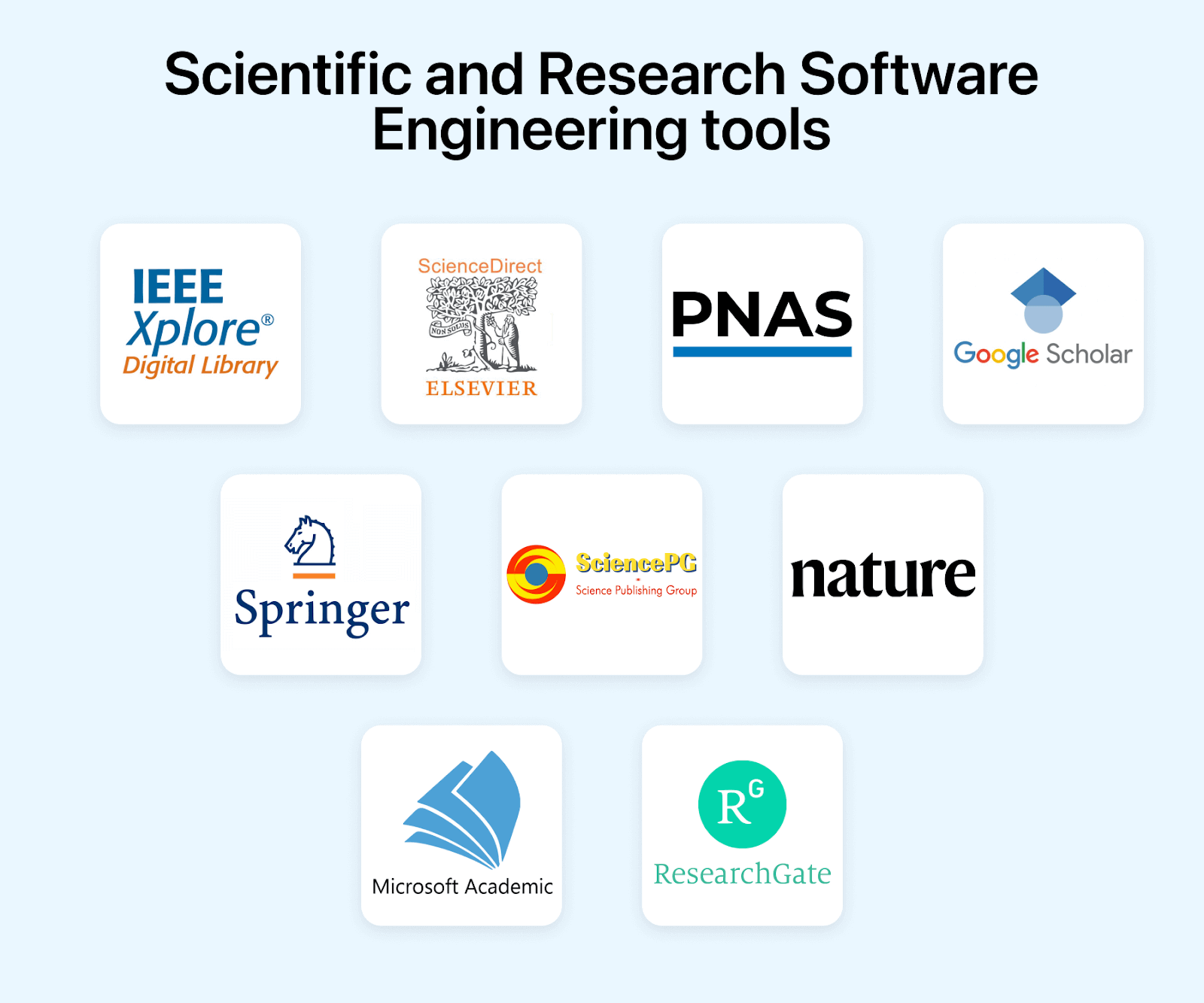
Software Engineering Job Titles and Their Hierarchy
Now that we have seen different software engineering domains, it’s time to explore jobs in different types of software engineering. Software engineers have many job titles and roles based on their experience and skills, which can vary from company to company. Nowadays, most of these software companies have adopted a dual-track career path for employees. This means that software engineers can choose between two paths: the Technical Track or the Managerial Track. Here, we have curated a list of job titles commonly preferred by companies and have arranged them in the hierarchy as shown in the image below:
![]()
Technical Track
This career path is preferred by software engineers who want to manage the software codes directly instead of the teams. The table below depicts the job titles in this track and their hierarchy based on experience.
| Job Title | Average Experience Expected | Responsibilities |
| Engineer 1 | 0 to 2 years | Foundational problem-solving, Basic engineering principles, Assisting senior engineers. |
| Engineer 2 | 2+ years | Working on small projects independently, Providing technical solutions, Collaborating with teams, and Troubleshooting. |
| Engineer 3 | 5 to 8+ years | Leading mid-sized projects, Mentoring junior engineers, and Providing complex problem solutions/ technical guidance. |
| Staff Engineer | 10+ years | Leading large projects, mentoring and training, setting standards, and ensuring excellence. |
| Senior Staff Engineer | 12 + years | Expert level of leadership, strategic influence, leading critical initiatives, and process improvement. |
| Principal Engineer | 14+ years | Top-tier technical leadership, industry influence, R&D leadership, strategic direction. |
Managerial Track
This career path is usually preferred by software engineers who want to manage teams of software engineers. The table below depicts the job titles in the managerial track and their hierarchy based on experience.
| Job Title | Average Experience Expected | Responsibilities |
| Engineering Manager | 5 to 8+ years | 1. Team leadership and project management. 2. Performance management and career development. |
| Director of Engineering | 10+ years overall and 5+ years of leading a team. | 1. Strategic planning and cross-functional collaboration. 2. Oversight of multiple engineering teams. |
| VP of engineering | 12+ years | 1. Department-level strategic planning and resource management. 2. Leadership development and high-level technical decision-making. |
| CTO (Chief Technical Officer) | 15+ years | 1. Overall technology strategy and innovation. 2. Alignment of technology with business goals and vision. |
Conclusion
In this article on types of software engineering roles, we explored different paths that one can opt for in the software engineering field. Some major software engineering fields require advanced programming and technical skills, while some require critical and analytical thinking capabilities. This article will help you select the perfect domain depending on the skills necessary.
Frequently Asked Questions (FAQs)
What types of software engineering will be in the highest demand?
Software engineering is a rapidly growing field. Hence, the demand for engineers is also increasing rapidly in almost all types of software engineering. However, Artificial intelligence, Machine learning, Full-stack engineering, Mobile development, Game development, DevOps engineering, and Security engineering are some of the most in-demand skills in the current market.
What are the educational qualifications to become a software engineer?
Depending on the types of software engineering, the educational requirements may vary. But most of the freshers’ roles in each type of software engineering demand a B.E./B.Tech, BCA, or MCA in computer science, information technology, or related fields. Besides these educational qualifications, some types of software engineering demand additional certifications like Security engineering and DevOps engineering.
What are common skills that all types of software engineering fields demand?
Every software engineer must have basic knowledge of programming, data structures, algorithm designing, critical thinking, and problem-solving ability. In addition to these, domain-specific skills are also required in various types of software engineering fields.
Got Questions? Drop them on LambdaTest Community. Visit now













